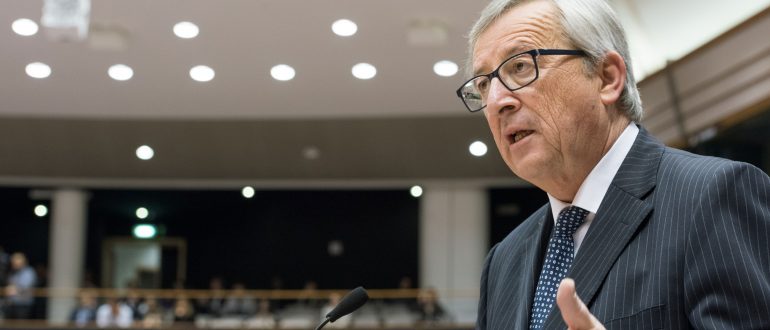
Energy and Defence as Touchstones of the EU
In many respects, the European Union is still not a union in the strict sense of the word. It may well be one at a bits and bobs level, but not when it comes to major issues. This is more evident in times of crises and change than in trouble-free phases.
The design of the economic and monetary union has brought unwelcome turbulence. The banking union is a consequence of the financial crisis. Now an energy and defence union are being debated. Other areas, such as communication, are still waiting to be discovered and dealt with: Why is there no single European telephone market?
Recently, Jean-Claude Juncker, the President of the European Commission, suggested a defence union. But it is still a long way to go before a pan-European defence can be put into practice.
It should not discourage us that the construction of the European External Action Service (EEAS) turned out to be less grand than originally intended. The track record of the first EU High Representative for Foreign Affairs and Security Policy is poor indeed. The British Catherine Ashton only ever won by points – which is also due to the Heads of State and Government having little interest in utilising the EEAS potential and handing over their sovereignty to the “EU Ministry of Foreign Affairs”. The highly qualified, but expensive diplomatic corps of the EU could be put to better use.
Thus, the EEAS is not a suitable role model for the establishment of a defence union. Against the background of the current crises surrounding the EU, it is surprising that all 28 EU member states are pulling together, even though some partners are not affected at all and others are in acute jeopardy.
Nevertheless: Moscow’s hope of being able to drive a wedge between the EU partners has not yet been fulfilled. None of the 28 governments has pulled out. This could be a good basis for the formation of a defence union. The EU should be able to cope with possible language and mentality barriers, which are often used as counter-arguments. A pan-European defence union would be a signal of decisiveness that other powers would understand. This not only refers to the powers east of the EU, but also to the allies on the other side of the Atlantic. The transatlantic alliance must and will not be damaged if the Europeans try to resolve conflicts in their own sphere of influence.
Furthermore, the benefits of a European energy union are obvious, at least at first glance. Joint purchasing of gas and oil could lower prices and make buyer countries less dependent on foreign gas supplies. Without a doubt, the fragmented EU energy market has mainly been to the advantage of Russian suppliers. The establishment of a stable energy union, modelled after the banking union, is one of the most ambitious priorities for Juncker and his commission.
But even here, sceptics present countless counter-arguments, especially in Germany. The nation states often have diverging interests in the energy sector and, of course, do not want to give up control of their energy policies.
Thus, a defence union and energy union are touchstones for how sincere governments in the various capitals really are with regard to a European Union. If sceptics would have dominated in 1952, the European Coal and Steel Community would never have been established. As so often in its history, the EU needs outside pressure and lessons learned from crises in order to move forward.
This article is part of CISS’s cooperation with the Diplomatic Magazine issue 07/2015.
